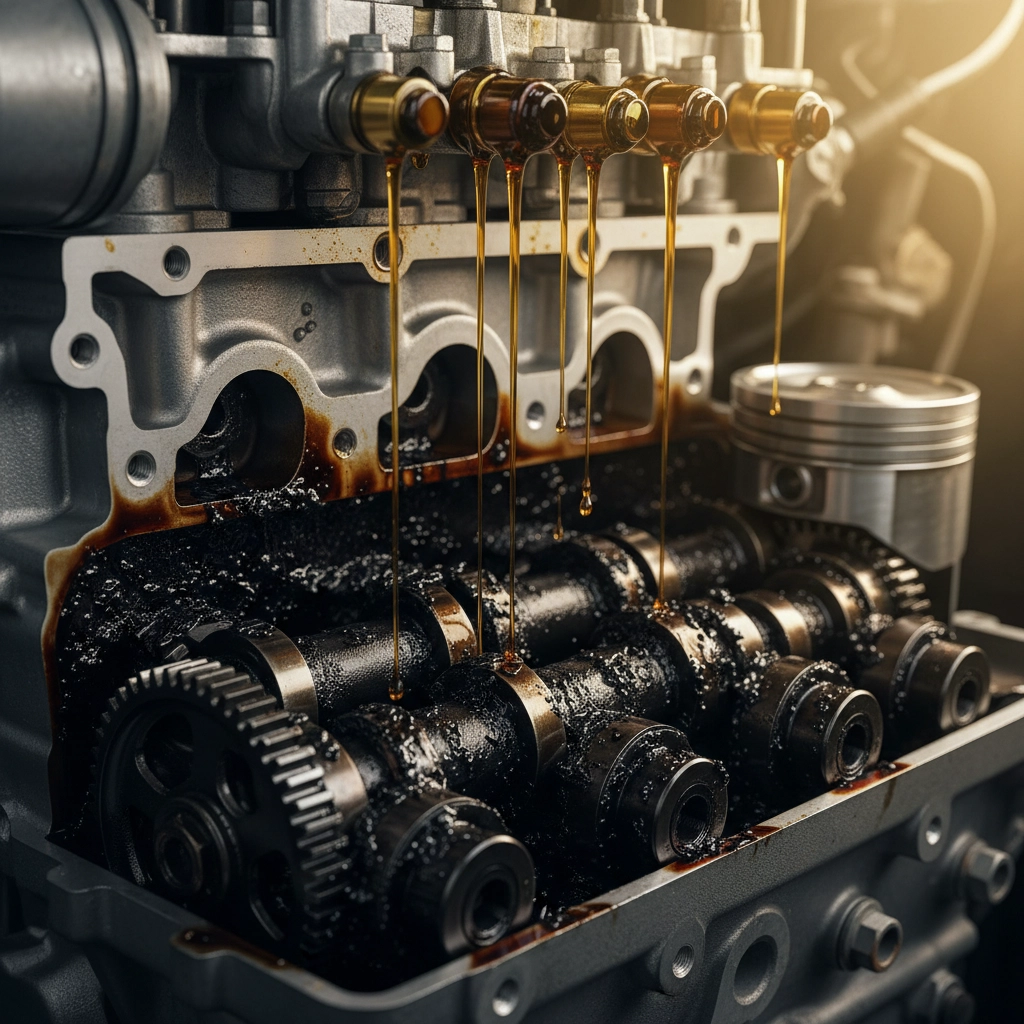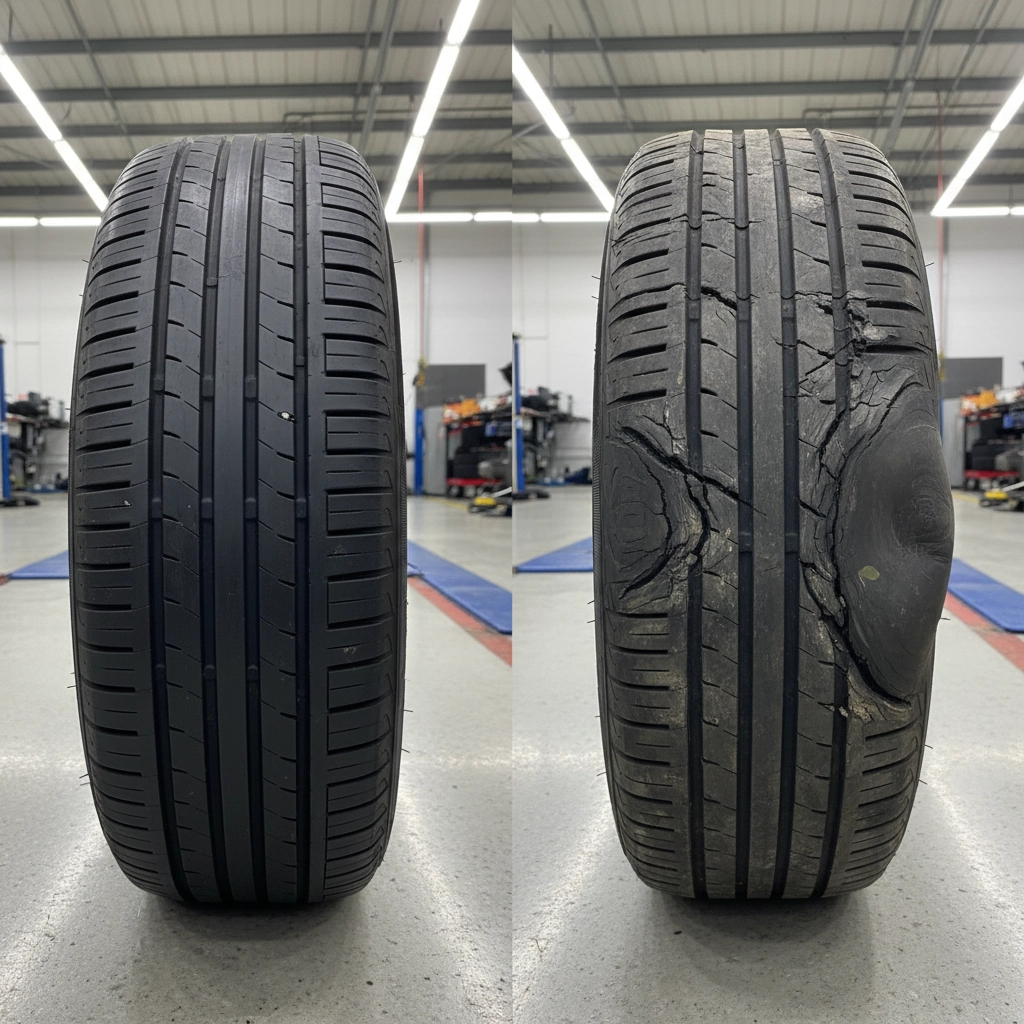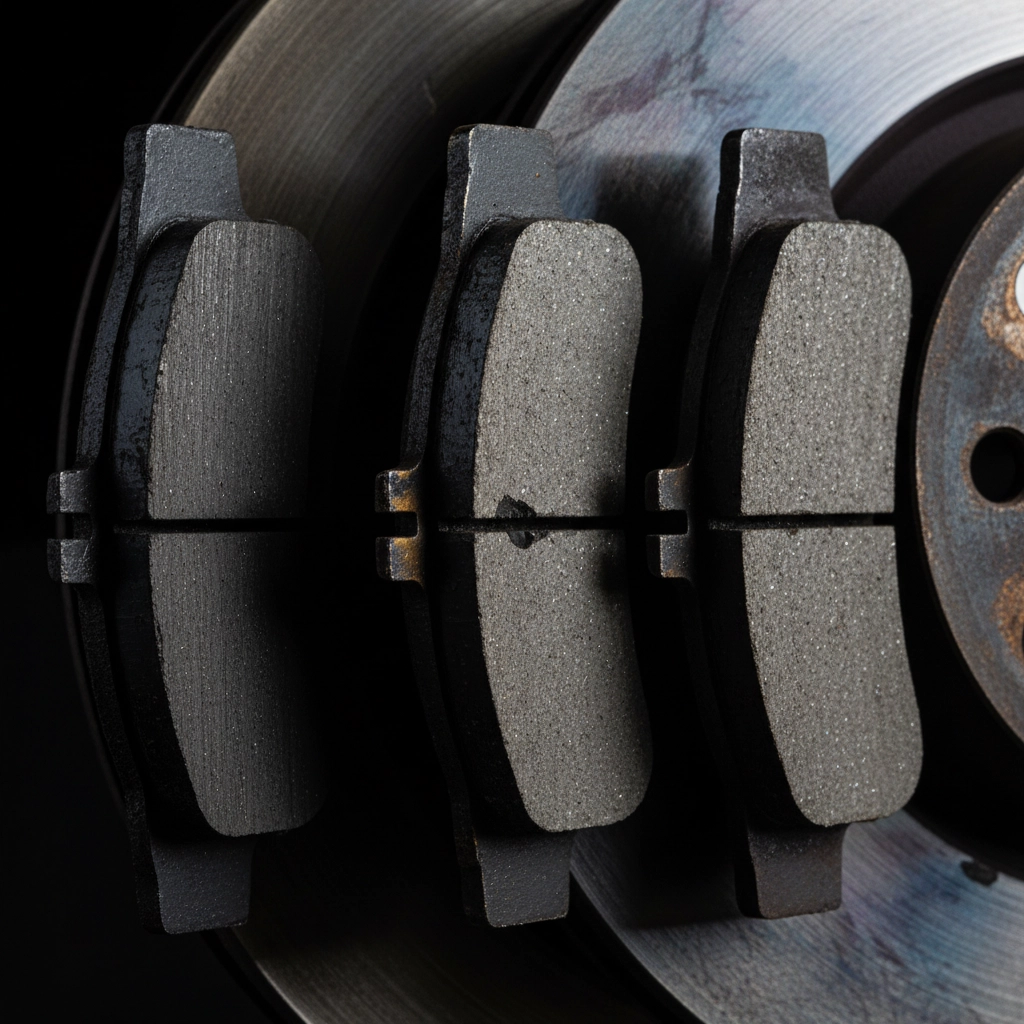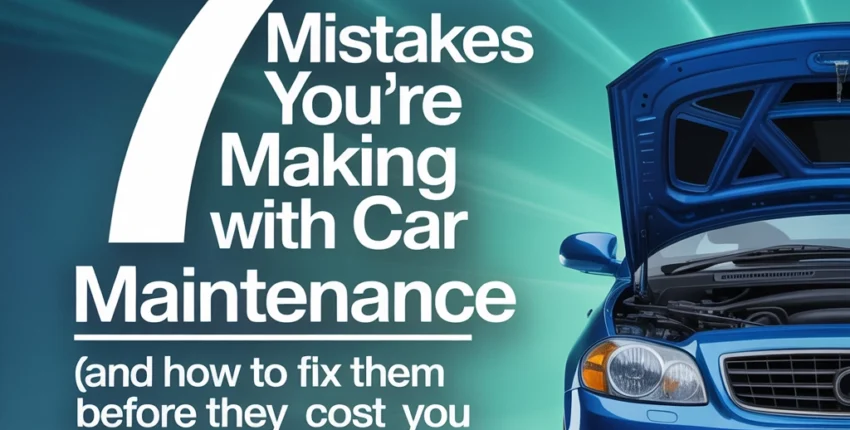Are you unknowingly setting yourself up for a massive auto repair bill? Most car owners think they're doing everything right, but small oversights in routine maintenance can snowball into thousands of dollars in unexpected repairs. The good news? These costly mistakes are completely preventable once you know what to look for.
Let's dive into the seven most expensive car maintenance mistakes drivers make every day – and more importantly, how you can avoid them starting today.
1. Skipping or Delaying Oil Changes
Here's the truth: your engine oil is working harder than you think. It's not just lubricating moving parts – it's carrying away heat, collecting dirt and debris, and preventing metal-on-metal contact that would destroy your engine in minutes.
When you skip oil changes or push them too far past the recommended interval, that oil breaks down and becomes contaminated. What started as smooth, protective liquid turns into thick sludge that can't do its job. The result? Engine seizure, bearing damage, and repairs that can easily cost $3,000 to $8,000 or more.
The Fix: Follow your manufacturer's oil change schedule religiously. Most modern vehicles need oil changes every 5,000 to 7,500 miles, but check your owner's manual for specifics. If you drive in stop-and-go traffic, extreme temperatures, or dusty conditions, you might need more frequent changes. Don't wait until that oil change reminder light comes on – schedule your next appointment before you need it.

2. Ignoring Tire Pressure and Rotation
Your tires are literally where the rubber meets the road, yet they're often the most neglected part of vehicle maintenance. Under-inflated tires don't just hurt your gas mileage – they create dangerous heat buildup that can lead to sudden blowouts on the highway. Over-inflated tires reduce your car's contact with the road, making it harder to stop and steer safely.
But here's what really hurts your wallet: improper tire pressure causes uneven wear patterns. Instead of getting 50,000 miles out of a set of tires, you might only get 30,000. With quality tires costing $600 to $1,200 for a full set, that premature replacement adds up quickly.
The Fix: Check your tire pressure at least once a month using a reliable tire gauge. The correct pressure is listed on a sticker inside your driver's side door frame – not on the tire sidewall. Rotate your tires every 5,000 to 8,000 miles to ensure even wear. Most tire shops will do this for under $50, which is a lot less than buying new tires early.
3. Putting Off Brake Maintenance
Your brakes give you plenty of warning before they fail completely, but too many drivers ignore the signs. That high-pitched squealing when you stop? Those are wear indicators telling you it's time for new brake pads. That grinding noise? That's metal-on-metal contact, and you're now damaging rotors along with pads.
When brake pads wear down completely, the metal backing plate grinds against your rotors, creating grooves and heat damage. What could have been a $150 pad replacement becomes a $600+ job requiring new rotors. Wait too long, and you might need to replace the entire braking system.
The Fix: Have your brakes inspected every time you get an oil change. Don't ignore squealing, grinding, or vibration when braking. If your brake pedal feels spongy or travels farther to the floor than usual, get it checked immediately. Early brake pad replacement is always cheaper than rotor replacement. For expert brake service, you can learn more about choosing the right brake repair service.

4. Dismissing Dashboard Warning Lights and Strange Noises
Modern cars are equipped with sophisticated computer systems designed to warn you about problems before they become catastrophic. That check engine light isn't just a suggestion – it's your car's way of telling you something needs attention now, before it gets worse.
The same goes for strange noises. That squealing from under the hood might be a worn belt that costs $50 to replace. Ignore it, and that belt could snap, leaving you stranded and potentially damaging other engine components. Those clicking sounds when you turn could indicate worn CV joints – a few hundred dollars to fix now, or over $1,000 if they fail completely.
The Fix: Never ignore dashboard warning lights or unusual noises. Modern diagnostic systems can pinpoint problems before they cause major damage. When a warning light comes on, have it diagnosed promptly – even if the car seems to run fine. Strange noises are often the first sign of impending mechanical failure. For comprehensive diagnostics, check out our guide on how regular engine diagnostics can prevent major repairs.
5. Overestimating DIY Skills
We get it – YouTube makes everything look easy, and saving money on repairs is appealing. But automotive repair requires specialized tools, knowledge, and experience. What looks like a simple job can quickly become complicated when you discover additional problems or realize you're in over your head.
DIY disasters we see regularly include stripped drain plugs from over-tightening, wrong parts installation, and electrical damage from incorrect procedures. These mistakes often cost more to fix than the original problem would have cost at a professional shop.
The Fix: Be honest about your skill level and stick to basic maintenance you're confident about – checking fluids, replacing air filters, or changing wiper blades. For anything involving the engine, transmission, brakes, or electrical system, consult professionals. When you do attempt DIY work, use proper tools, follow manufacturer procedures exactly, and don't be afraid to ask for help if you get stuck.

6. Neglecting Battery and Electrical System
Car batteries don't usually fail gradually – they often work fine one day and leave you stranded the next. But there are warning signs if you know what to look for. Slow cranking, dim headlights, or a battery that's more than three years old are all signals that replacement time is approaching.
Beyond the inconvenience of being stranded, a failing battery can damage other electrical components. When a battery struggles to provide adequate power, alternators work harder and can burn out prematurely. Voltage fluctuations can also damage sensitive electronic modules, leading to expensive computer replacements.
The Fix: Have your battery tested annually after it's three years old. Clean corrosion from terminals regularly – that white, crusty buildup prevents proper electrical connection. If you notice slow starting or dim lights, don't wait for complete failure. Replacing a battery proactively costs around $150, while replacing an alternator damaged by a failing battery can cost $500 or more.
7. Using Wrong Fuel and Ignoring Fluid Maintenance
Your car's engine was designed for a specific octane rating, and using the wrong fuel can cause problems. While using higher octane than required won't hurt anything (except your wallet), using lower octane in a car that requires premium can cause engine knock, reduced performance, and long-term damage.
But fuel isn't the only fluid that matters. Coolant prevents overheating and freezing, brake fluid ensures safe stopping, and transmission fluid keeps your transmission shifting smoothly. Neglecting these fluids or using the wrong type can lead to complete system failures costing thousands to repair.
The Fix: Always use the fuel octane rating specified in your owner's manual – you'll find it on a sticker inside your fuel door too. Have all fluids checked and changed according to manufacturer schedules. Don't assume all fluids are the same – different vehicles require different specifications. When in doubt, consult your manual or a trusted technician. Learn more about choosing the right oil and filter for your vehicle.
Don't Wait Until It's Too Late
The common thread in all these mistakes? They're all preventable with regular maintenance and attention to warning signs. The few hundred dollars you spend on routine maintenance can save you thousands in major repairs down the road.
At Hillside Auto Clinic, we've seen firsthand how these simple oversights can turn into expensive headaches. That's why we focus on honest, preventive care that catches problems early. We'd rather help you avoid a major repair than profit from one after it's too late.
Ready to get ahead of potential problems? Our experienced technicians can help you develop a maintenance schedule that fits your driving habits and budget. Contact us today to learn more about keeping your vehicle reliable and your repair costs manageable.

